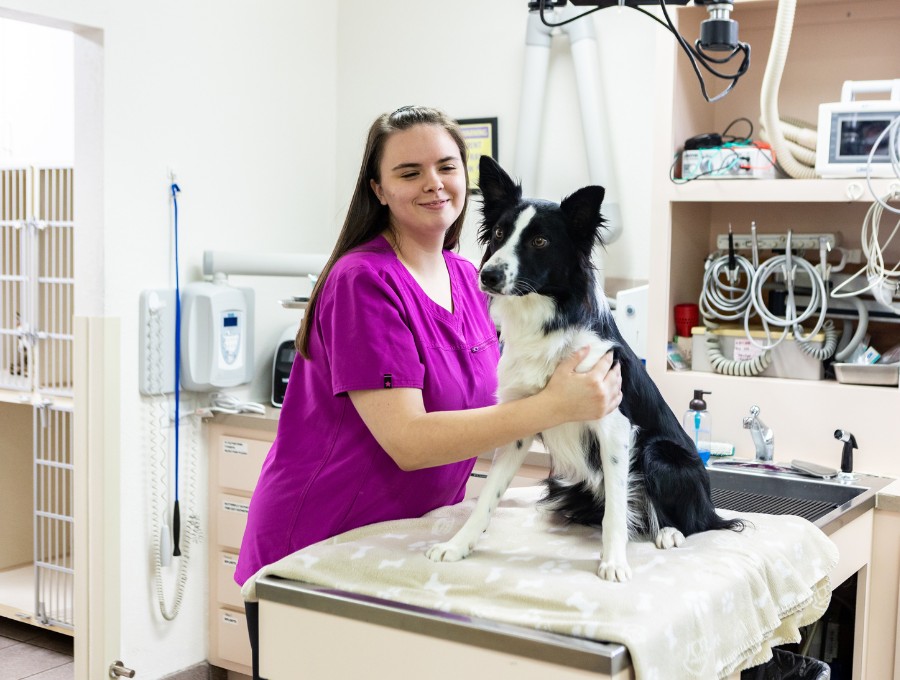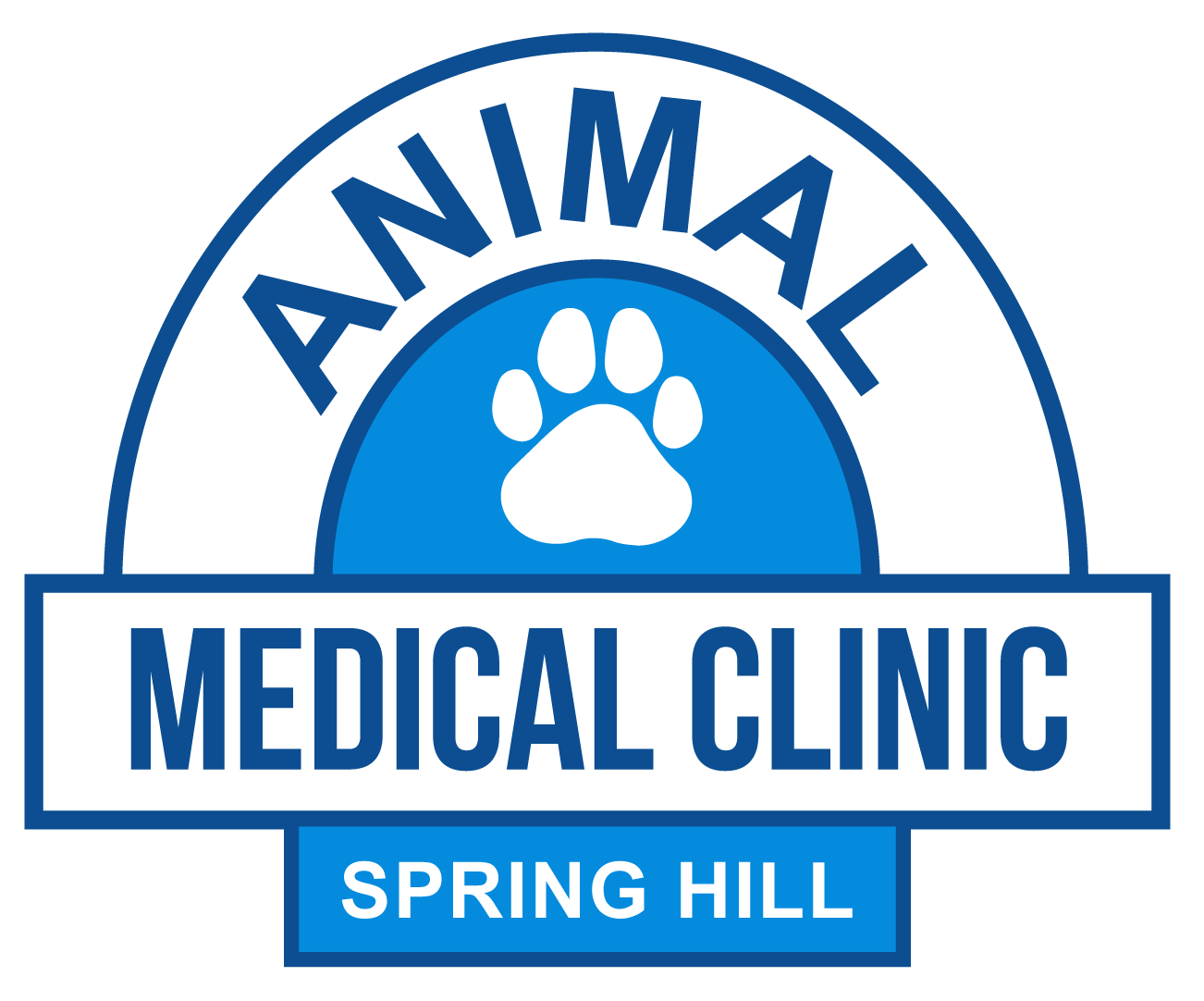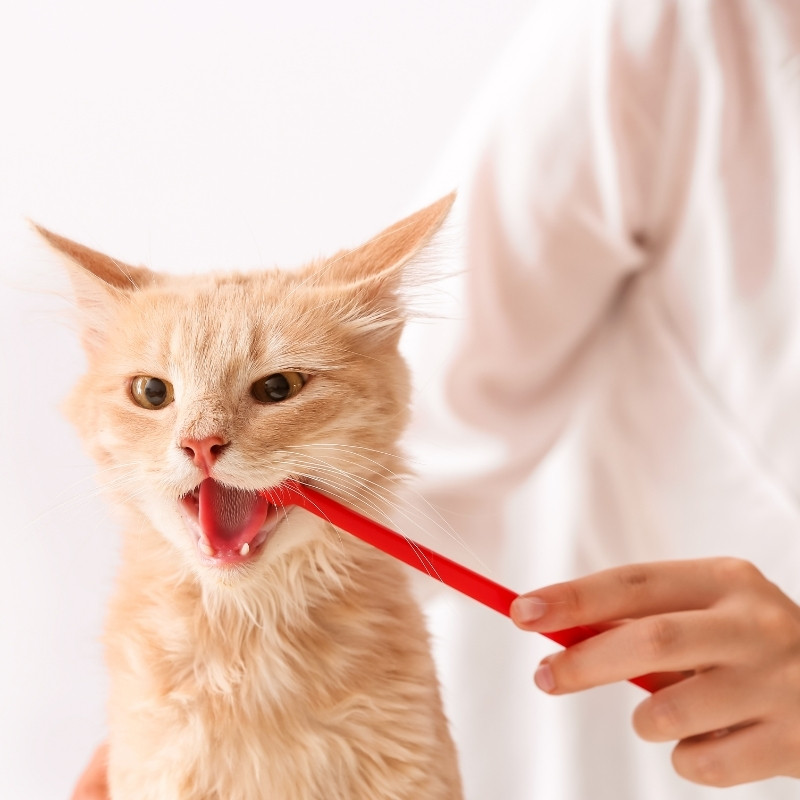Pet Dentistry in Spring Hill, FL
Proper dental care is essential to your pet’s overall health and well-being. At Animal Medical Clinic of Spring Hill, we offer comprehensive pet dentistry services to ensure that your pet’s teeth and gums remain healthy. Regular dental care helps prevent issues such as gum disease, tooth loss, and even complications with the heart and kidneys. Our experienced team provides professional care for all aspects of dog teeth cleaning and dental health, supporting your pet’s dental health and comfort.

When Does Your Pet Need Dental Care?
Pets can experience dental issues similar to humans, and knowing when to seek dental care is critical to maintaining their health. Watch for the following signs that may indicate your pet needs to see a pet dentist:
- Bad breath (halitosis)
- Difficulty eating or chewing food
- Swollen, red, or bleeding gums
- Loose or broken teeth
- Yellow or brown tartar buildup on teeth
- Drooling excessively
- Pawing at the mouth or face
- Loss of appetite or weight loss
Dental Services We Offer
Our pet dentistry services cover a wide range of needs, from routine cleanings to more advanced treatments. Here’s what you can expect during your pet’s dental visit:
Comprehensive Dental Exam
During the dental exam, we evaluate your pet’s teeth and gums to identify any potential problems, such as plaque buildup, gum disease, or damaged teeth. A thorough examination allows us to recommend the best treatment plan for your pet’s needs.
Teeth Cleaning and Polishing
Routine teeth cleaning involves the removal of tartar and plaque, which are the primary causes of periodontal disease. After cleaning, we polish your pet’s teeth to smooth the surface and help prevent future buildup. This entire process is performed under general anesthesia to ensure your pet’s comfort and safety.
Dental X-Rays (Radiographs)
Dental radiographs allow us to see beneath the surface of your pet’s teeth and gums. These images help us identify problems such as tooth root infections, bone loss, or impacted teeth that may not be visible during a regular exam. X-rays are a vital part of diagnosing and treating dental issues early on.
Tooth Extractions
In cases of severe dental disease, extractions may be necessary. Our veterinarians are skilled in tooth extractions, ensuring the procedure is as comfortable as possible for your pet. Pain management is a top priority during and after the extraction to promote fast recovery.
Prophy Cleaning
A general anesthetic is required to perform these procedures. After your pet is anesthetized, we will clean your pet’s teeth and then polish them. We will then examine the teeth and gum tissue using a dental probe. This will determine if further treatment is indicated. Extraction (pulling) of diseased teeth may be necessary if there is a loss of normal attachment to the bone due to advanced periodontal disease.
Benefits of Pet Dental Care
Routine dental care offers numerous benefits for your pet:
Regular cleanings remove plaque and tartar, reducing the risk of painful gum disease and tooth decay.
Maintaining oral health reduces the risk of bacteria entering the bloodstream and potentially affecting vital organs.
Routine dental care helps eliminate bad breath by addressing plaque and bacterial buildup.
Healthy teeth and gums allow your pet to eat comfortably without pain or difficulty.
Regular checkups catch dental problems in their early stages, preventing more serious complications down the road.
Contact us to learn more about our pet dentistry services and how we can support your pet’s overall well-being.

